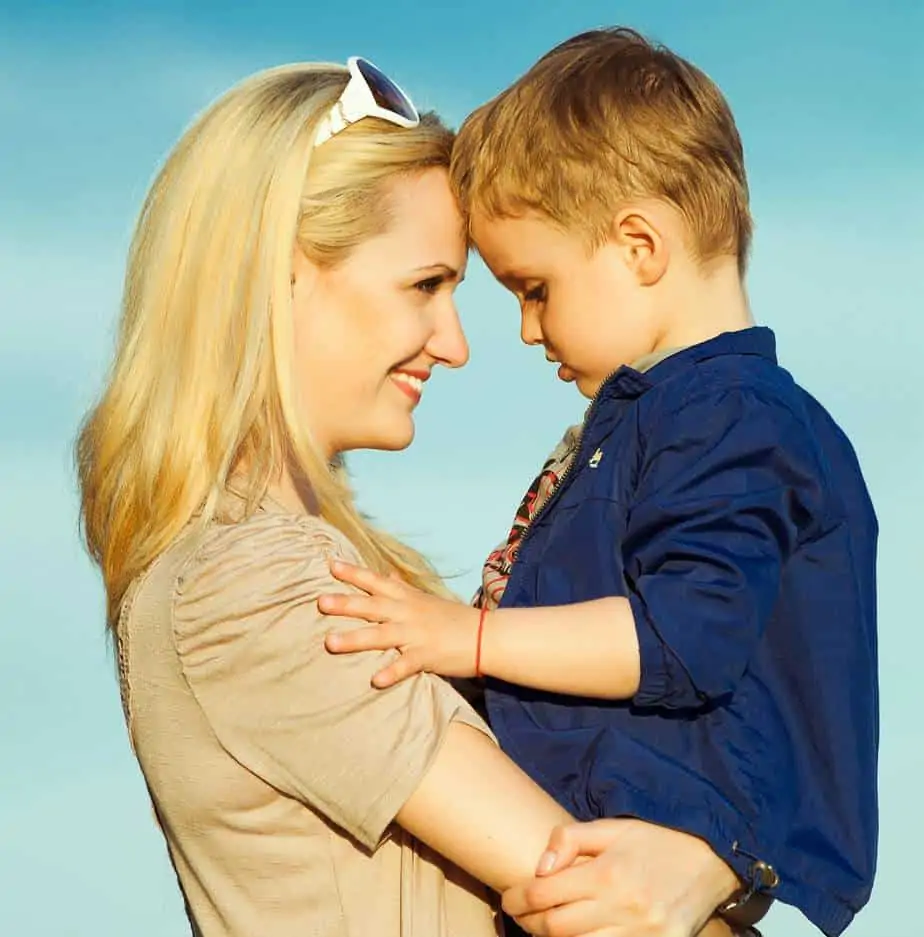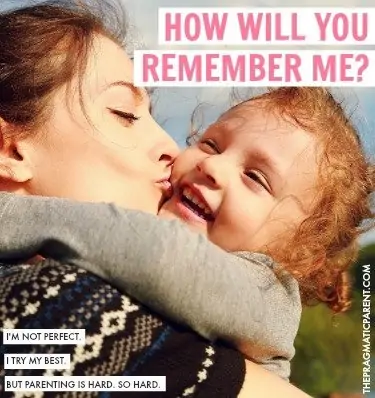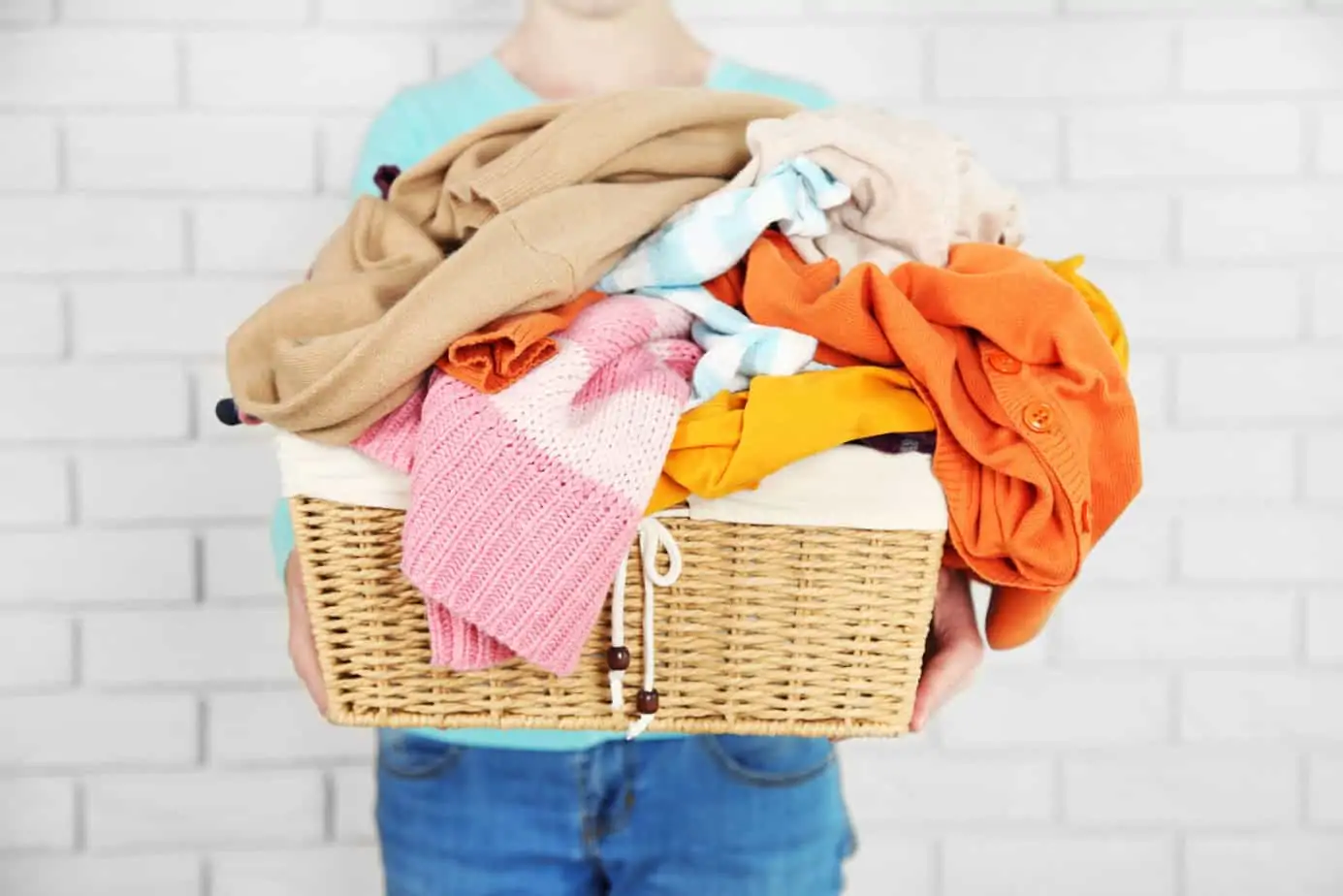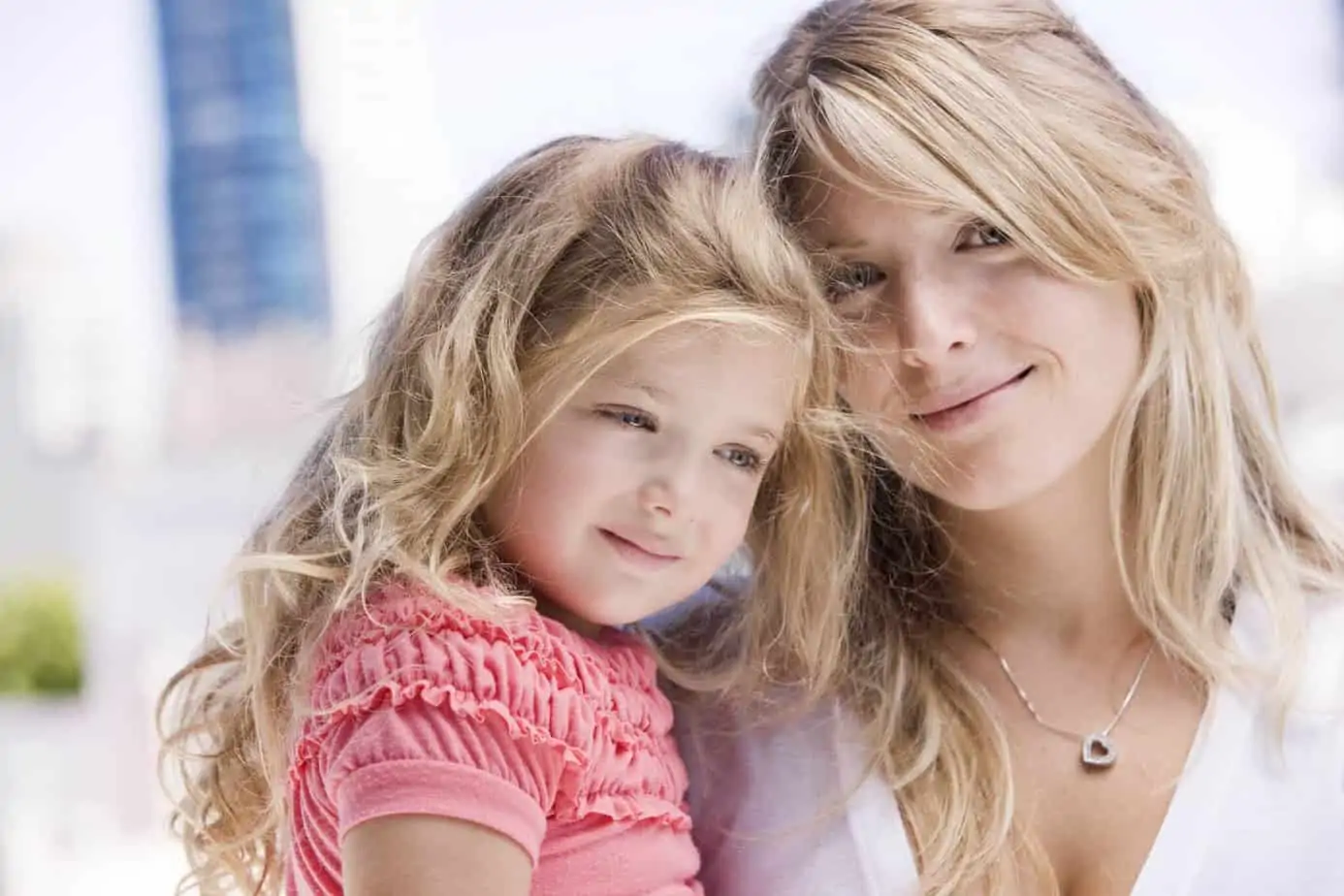Learn to identify the triggers which cause you to get mad, notice your hots spots and techniques to help you calm down. How to stop yelling at your kids! Ready to make BIG changes? Calm Parenting: Learning to Stop Yelling as helped hundreds of parents already. See what all the fuss is about and how this ecourse retrains the brain for calm, patient responses.
Not ready for the course? The beginner’s guide to stop yelling is the perfect way to dip your toe in to making a change.

Why Do I Yell at My Kids & How Do I Stop?
We were doing the bedtime dance again, and I was on my own for the night.
It went something like this: my son would get out of his bed, run to his sister’s room, they’d jump under the covers and the sound of giggles wind its way downstairs where I’m crumpled on the couch trying to unwind from the long day before I had to jump back on my computer and start working.
I could feel the anger growing stronger each time this dance repeated itself.
I had a work deadline early the next morning and was trying to finish a project, but getting no work done the more I went up and down the stairs.
I re-read the same paragraph for the tenth time. I looked up at the clock, forty minutes had passed since I first put them to bed.
Before I could stop myself, the words erupted as I slammed my pen down and flew up the stairs.
“Get in your beds! This is not OK, go to sleep!”
I forcefully shut their doors and then sat on the top of the steps, listening to my own heartbeat thump loudly.
I dropped my head to my knees and the tears quickly sprang to my eyes.
There I was, having my own major tantrum, completely loosing it.
I felt like I was going crazy!
I hated the angry Mom I morphed into when I was stressed from work.
The kids were just doing usual kid stuff, goofing off and having fun, although at bedtime, but I was blinded by anger I only saw their actions as a detraction from my work and intentionally pushing my buttons.
I wiped my eyes and went to each of their rooms to apologize for yelling, tucked them in one last time and said goodnight.
Turns out, all they needed was one last kiss and hug.
NOT LIVING WITH PARENTING ANGER ANY LONGER
I had started to morph into an angry mom and was yelling more often than I could even admit to myself.Instead of responding to my kids in a loving way, I let my temper take over. I hated the way I felt. I would spend most nights until I fell asleep, racked with guilt and my pillow soaked in tears.
I knew I had to learn to stop yelling for my own sake – and the sake of my children. This wasn’t the person, or the Mom I wanted to be.
The cycle of yelling is something that’s innate to me. It’s all I knew from childhood.
Growing up in a house where the only form of communication was to yell, the hours before school and after school were tense in our house. My siblings and I walked on eggshells, trying not to disrupt the peace and stay in line. My parents spent most of their time yelling at each other, but we were also caught in the cross-fires when they needed a different target.
When your parents yell daily, it makes you scared to do anything out of line and risk being yelled at.
When I noticed I was yelling at my own children, the same children I’m madly in love with, I knew I had to change. I was resolute on being a different Mom for my children, better than the one I had grown up with.
In my nightly google searches for techniques to stop yelling, I came across this quote. It’s something I think often and remind myself of frequently.
“Your Kids Aren’t Giving You a Hard Time, They’re Having a Hard Time.”
In combating the triggers which cause you to react, remember, the ultimate reward is to continuously build a strong, respectful, trusting and loving relationship with your children.
Everything is a process and takes time, be patient with yourself and know that set-backs will occur.
HOW TO FIND YOUR ANGER TRIGGERS THAT CAUSE YOU TO SCREAM
1) IDENTIFY WHAT MAKES YOU MAD ENOUGH TO YELL
Spend several days observing your reactions to your children. When you loose your patience and yell, what is going on within and around you? What is going on internally and around you that can be contributing to you yelling?
For me, my main triggers are work deadlines, why my house is messy and the noise levels in my house reach sonic levels!
Start jotting down notes and find the patterns between yelling and your environment and internal conversation.
2) TEST CALMING TECHNIQUES TO FIND WHAT WORKS
Calming techniques are the methods you use to stay calm when you feel your temper begin to form.
Before I loose my patience, I will ask the kids to play quietly in their rooms for five minutes while I calm down, I take time to be by myself or go outside and get fresh air.
What I’ve found that works the best is to be honest with my kids. I’ll say “Mommy is feeling frustrated right now that you are not listening.” When my kids see my acknowledging my feelings and hearing it said outlaid, they respond by helping make the situation better.
Kids don’t want to be yelled at! When you’re honest about what you’re feeling, they respect this and will work with you to help remove the tension and anger.
Now, if I’m in my car and the kids are bickering in the backseat, I have a stress ball in the car to squeeze which moves my attention to a more powerful sensory input of the texture of what’s in my hand.
I also like to pull out my phone and scroll through pictures because it brings me back to feeling grateful for my family and quickly I notice my anger subsides and patience returns.
I know friends that put post-it notes around the house with little sayings and reminders. Others have pictures of their kids or a handmade item in their car or house so that if they look at it when they’re about to raise their voice, it’s all they need in order to think of how much they love their child and this stops them from yelling.
BONUS: 20 Tips to Calm Down When You’re Upset or Angry
3) DON’T LET ANGER TAKE THE FOCUS AWAY FROM YOUR CHILD
I always think of the quote above when I’m trying to calm down and take my mind off the situation. This reminds me to look at the bigger picture and turn the focus back on my child.
What is going on with my son to cause him to act out? Is he tired, hungry, not getting enough attention, feeling left out and needs more one-one-one time to connect?
Proactively turn the focus around to helping your child and acknowledge his feelings so you can respond in a loving way.
4) IT’S TIME TO LET GO OF SOME CONTROL
I was never a “Type A” person before I had kids but once we had twins and their routine became the holy grail to our days running smoothly, I became a bit of a control freak to keep our routine in place.
As my kids have gotten older, I’ve realized I can be more flexible with our schedules and it doesn’t affect them as much as when they were babies.
Part of letting go of control is learning to say ‘Yes’ more.
When the kids want to change plans or even skip a nap, most of the time, we can. There is much more give and take at the age of four that listening to them get involved in the decision-making process and express themselves is growth for both of us.
When I allow myself to be more adaptable, I’m not wound as tight. I react more calmly when I’m operating in a less controlled environment.
5) THE APOLOGY YOUR CHILD NEEDS YOU TO SAY
Sometimes we yell. We try hard not to, we try to calm down and we take some time to step away from the situation, but that doesn’t always work.
If we do slip up and raise our voice, the first thing you need to do is apologize and share your feelings with your child.
Teaching your children that adults make mistakes and taking responsibility for the situation does two things. It takes the pressure of your child who may feel responsible for your anger and children learn how to admit when you’re wrong and properly apologize.
What until you’ve calmed down and sit with your child. Apologize for yelling and tell them WHY you were angry. Describing your emotions also helps children to make the connections between feelings and reactions.
- Was I frustrated that my weren’t listening when I asked them to clean up the playroom or because we are having guests over at the house looks like a hot mess?
- Was I angry that the kids were hitting each other or that it makes me sad they don’t get along?
- Did I loose my patience because my daughter is refusing to eat dinner or because I don’t want her to be hungry?
Ask your children how it makes them feel when you yell. Allow them to talk about their emotions and describe what they feel so you understand the impact you are making on them.
REMEMBER THIS WHEN YOU YELL AT YOUR KIDS
The process to stop yelling altogether is slow and involves a lot of personal desire to do better. Being aware that you want to change is the best first step.
You probably won’t stop yelling on the first try and that’s Ok. But by the second or third try, you’ll be more conscious of your triggers and ways to calm yourself down.
Changing yourself takes conscientious practice; be gentle with yourself. You aren’t perfect, but you’re trying to be better.
Need a little extra help learning how to get your anger under control? Here’s a FREE Course that will help you turn things around.
You Might Like…
- 10 Effective Habits of a Happy Stay at Home Mom
- 10 Tips to Help You Become a More Patient Parent
- How to Stay Calm When Your Child Misbehaves
- 25 Things That Are Stealing The Joy of Motherhood
Want even more?
Shop All Parenting Resources
Shop all of our parenting resources from self-regulation tools and managing big emotions to building self esteem and confidence. There are resources for all seasons of life!









I 100% LOVE THIS!!! Thank you so much!
Of course, so glad you found it useful Carolyn.
I needed to read this so bad. Thank you!
I was also raised in a household where both my parents would yell. I do not want to do that to my children so I’m going to remember that quote
I am a yelling mom. So true kids are just being kids. I am working on it. Great tips!